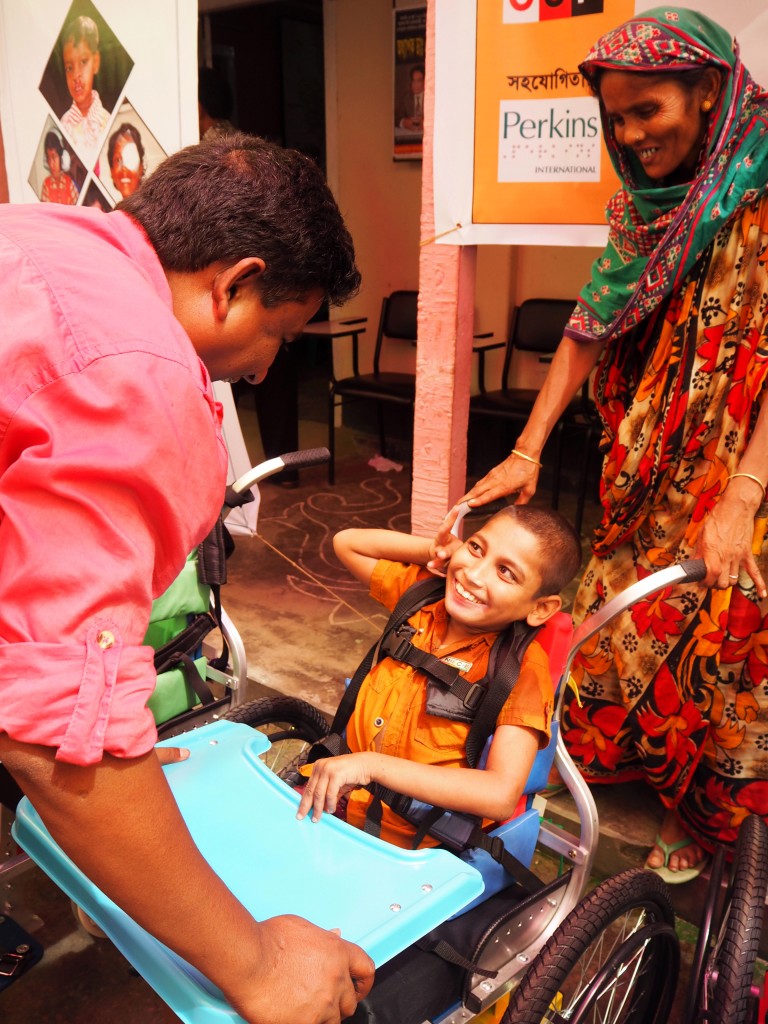
Background
In Bangladesh there is no exact prevalence data on childhood disabilities. Through their previous studies WHO and NFOWD (National Forum of organisation working with disabilities) showed that approximately 6-10% of people in Bangladesh have a disability, however there is no specific prevalence data on children with disabilities. Additionally, a recent world disability report showed that there are approximately 15.6% of persons with disabilities globally. Currently we are conducting research on childhood disabilities in Bangladesh with technical support from London school of Hygiene & Tropical Medicine. We are expecting that this will contribute to the collection of prevalence data.
Throughout Bangladesh people with disability experience numerous challenges and difficulties. A major problem for many people is in receiving services from existing government and non government health services. People specially disable people don’t know about their health rights. Hospital have special facility for the disable people. There is no health access in the sub district, district level hospital. So awareness on health rights of disable people, availability of health service are very essential in all level.
Project purpose
Main purpose of this project are
- To inform children with disabilities and their family regarding basic health issues and available accessible health services
- To increase Children with disabilities uptake rate to receive basic health services from health care centres
- To involve Children and their parents in decision making process to change or modify health services and reduce stigma through self help group active participation
Project beneficiaries
Direct beneficiaries of this project included children with disabilities, parents, community people, partner organisations (HAB & CDN). This project will target to promote most effective methods (for example, key informant method) to reach the poorest and most disadvantaged disable children particularly from remote rural areas. We also promote identifying girls who are blind, through providing special emphasis on girls in key informant method.
Activities
Our main strategy will be partnership, collaboration and empowerment of children with disabilities and their parents. First of all, we will organise a training session in the rural area for community people, government health staff, health professionals, NGO staff, and other health related service providers on treatment and rehabilitation of children with disabilities. Our other activities include:
- Case detection and treatment camps
- Parent self-help group formation meetings and monthly meetings
- Health staff training
- Key Informant training
- Inclusive sports
- Home visits
- Assistive device support
Our activities are taking place in four subdistricts of Sirajganj:
- Shahjadpur
- Kamar Khandh
- Ullapara
- Sirajgang Sadar
To date, 123 children with disability have participated in this project and we have conducted 12,922 home visits as part of this project.
Sustainability
This project is focused on empowerment of children with disabilities and their parents to get accessible basic health service in existing health service providers. Project ultimate goal is to create equal and accessible society for the children with disabilities particularly in health sector and it should be government health sector. Finally this project will bring nice and accessible environment in the health service of project area with support from parents, children, community people, GO-NGO-Private health system, service providers and donor.
Partners

